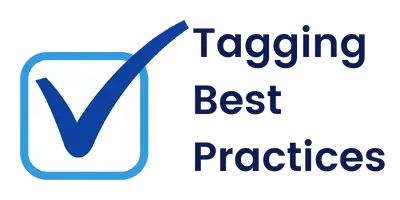
Enhancing SEO with Tagging: Best Practices and Tools
In today's digital marketing landscape, Search Engine Optimization (SEO) is more crucial than ever. One of the key strategies for boosting SEO is effective tagging. Let’s explore how tagging can enhance your SEO efforts, focusing on the best tag generator tool, free tags generator tool, and various tagging best practices. Check out BeBran's Free Meta Tag Generator Tool.
Understanding the Importance of Tagging in SEO
Tagging in SEO involves assigning relevant keywords or phrases to your website's content. This practice helps search engines understand the context of your content, improving its visibility in search engine results pages (SERPs). Effective tagging is not just about choosing the right keywords; it’s about understanding your audience and what they are searching for.
The Role of Tags Generator Tools
A tags generator is an essential tool in the SEO toolkit. It helps in identifying the most relevant and effective keywords for your content. These tools analyze your content and suggest tags that can help your website rank higher in SERPs.
Best Tag Generator Tool
The best tag generator tool is one that offers a comprehensive analysis of your content and competition. It should provide insights into trending keywords, long-tail phrases, and suggest tags that are both relevant and have a high search volume.
Free Tools: Free MozRank Checker Tool Online | Free Keyword Position Checker Tool Online | Free SERP Checker Tool Online
Free Tags Generator Tool
Budget constraints shouldn’t be a barrier to effective SEO. A free tags generator tool can be a great resource for small businesses or individual bloggers. While they may not offer the advanced features of paid tools, they are still effective in generating relevant tags for your content.
Best Practices in SEO Tagging

- Relevance is Key: Always choose tags that are directly relevant to your content.
- Avoid Overstuffing: Using too many tags can be counterproductive. Stick to a reasonable number of highly relevant tags.
- Update Regularly: As trends and search patterns change, update your tags to stay relevant.
- Use Long-Tail Keywords: These are more specific and often have less competition.
- Analyze Competitors: Understand what tags are working for similar content in your niche.
How to Use Tag Generator Tools Effectively
- Understand Your Content: Before using a tags generator, have a clear understanding of your content and target audience.
- Use a Mix of Tools: Combine the insights from the best tag generator tool and a free tags generator tool for a balanced approach.
- Analyze and Apply: Analyze the suggested tags and apply them thoughtfully to your content.
- Monitor Results: Regularly monitor how the tags are affecting your site's performance and make adjustments as needed.
Conclusion
Tagging is a powerful SEO tool that, when used correctly, can significantly enhance your website's visibility in search engine results. By utilizing the best tag generator tool, free tags generator tools, and adhering to best practices, you can create an effective tagging strategy that drives traffic and engagement to your site. Remember, the key to successful SEO tagging is to remain relevant, up-to-date, and in tune with your audience's search behaviors. Check out BeBran's Free Meta Tag Generator Tool.
Explore More: Memes and Marketing: Leveraging Meme Generators for Branding | Meme Generator User's Manual: A Step-by-Step Guide for Beginners
Frequently Asked Questions
1. What is a tags generator?
A tags generator is a tool that suggests relevant keywords and phrases for tagging your website content to improve its SEO.
2. How do I choose the best tag generator tool?
Look for a tool that offers comprehensive analysis, trending keyword insights, and competition analysis.
3. Are free tags generator tools effective?
Yes, free tags generator tools can be effective, especially for small businesses or bloggers starting with SEO.
4. How often should I update my tags?
Regularly, especially when there are changes in search trends or when you update your content.
5. What are the benefits of using long-tail keywords in tags?
They are more specific, often less competitive, and can attract a more targeted audience.
6. Can I rely solely on a tags generator for my SEO strategy?
While helpful, tags generators should be part of a broader SEO strategy that includes content quality, backlinks, and user experience.
7. How many tags should I use for each piece of content?
It varies, but a general rule is to use a mix of 5-10 relevant tags per piece of content.
8. What’s the difference between tags and keywords?
Tags are specific keywords or phrases used to describe the content and context of a web page for SEO purposes.
9. Should I use the same tags for every piece of content?
No, tags should be specific and relevant to each individual piece of content.
10. How can I measure the effectiveness of my tags?
Monitor changes in your search rankings, website traffic, and engagement metrics after applying new tags.



